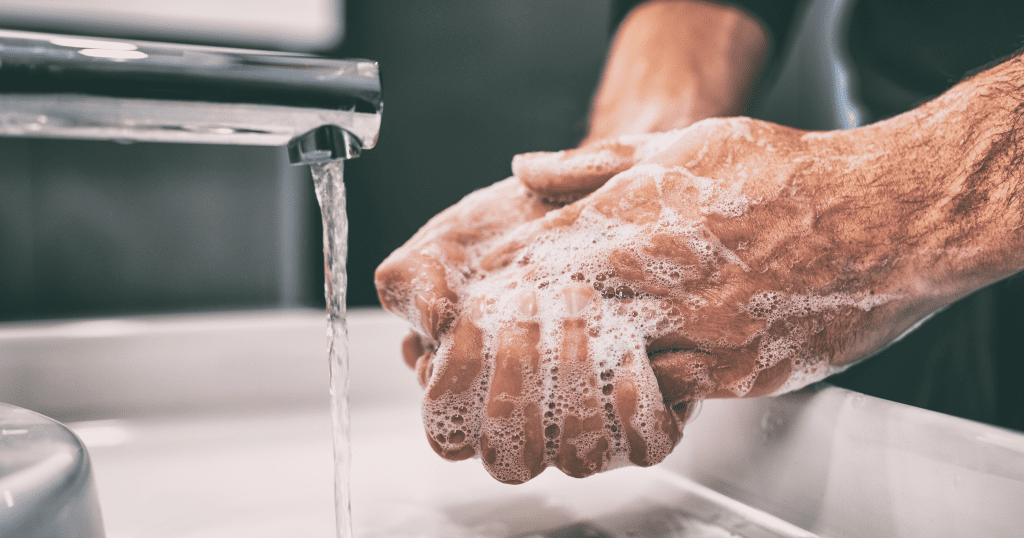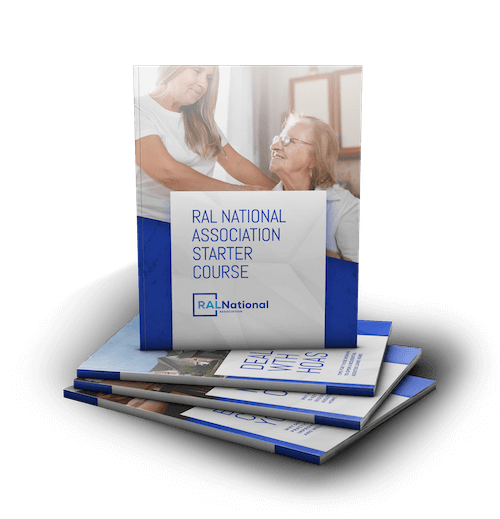Seniors Are Experiencing An Unprecedented Amount Of Stress And Anxiety Hoping To Avoid Exposure To The Coronavirus.
Residential assisted living owners and operators are constantly searching to find out how other homes are responding to this crisis. In these uncertain times, we believe that our best approach is to open a discussion for people to see and analyze how others are coping with the COVID-19 pandemic. Our united effort can help minimize the impact that this virus will have on seniors. In addition to relying on input from one another, the Residential Assisted Living National Association is directing caregivers to the Center for Disease and Control (CDC) and the World Health Organization (WHO). Do you know what steps to take to keep seniors safe from exposure of coronavirus in your residential assisted living home? This article will analyze some different policies that have been suggested for individual states, with specific emphasis on Colorado, Arizona, Florida and California. We have also included a link to a California-based FB group called “assisted living quarantined” https://www.facebook.com/groups/345711949695135/.
COLORADO COVID-19 ORDERS
The Denver Department of Public Health & Environment (DDPHE), coordinates with local, State, and Federal agencies to provide accurate information to the public about COVID-19. The goal is to reduce transmission, share resources and provide accurate communication. Considerations specific to settings where businesses provide services include the following:
- Encourage staff, residents, and guests to wash hands often with soap and water for at least 20 seconds after going to the bathroom, blowing their nose, coughing or sneezing into hands, and especially before eating. Post handwashing signage at the entrance of your facility and in visible locations in restrooms, eating areas, and other common areas.
- Screen and exclude any staff or visitor experiencing the following symptoms
-
- Runny nose,
- Fever,
- Cough,
- Shortness of breath or difficulty breathing,
- Chills,
- Body aches,
- Sore throat,
- Headache,
- Diarrhea,
- Nausea,
- Vomiting,
- Screen and exclude any visitor with recent travel to a country or region where community spread of COVID-19 is occurring (refer to CDC for this list Recent travel to a country or region where community spread of COVID-19 is occurring (refer to CDC for this list)
- Limit the number of visitors for residents to 2 per day max.
- Residents experiencing the symptoms listed above shall be isolated per facility’s infectious disease protocol.
- Ensure visitors and staff are excluded from work while ill with respiratory symptoms.
- If possible, dispense surgical masks for those experiencing severe respiratory symptoms and request that they wear them in your facility. Masks should NOT be used by people not experiencing symptoms.
- Clean and disinfect high-touch surfaces such as doorknobs, handrails, sink handles, light switches, toilets, restroom sink surfaces, countertops, etc. using a cleaning spray or wipe effective against COVID-19.
ARIZONA COVID-19 ORDERS
To address this COVID-19 public health emergency, the Governor has declared that a State of Emergency exists in Arizona due to the COVID-19 outbreak. The Executive Order 2020-07, directs the Department to conduct emergency rulemaking to adopt requirements designed to prevent the spread of the virus to vulnerable Arizonans. These rules apply to the most vulnerable individuals, which are the elderly. In response to the Governor’s Declaration of Emergency, the Department has amended the rules for nursing care institutions, intermediate care facilities, and assisted living facilities through emergency rulemaking. The new rules:
- Require these licensed healthcare institutions to establish, document, and implement policies and procedures:
-
- To require screening and triage of personnel members, employees, visitors, and any other individuals entering the facility;
- To assess residents to determine a change in a resident’s medical condition;
- For disinfection of frequently touched surfaces; and
- To distance residents who exhibit symptoms of a communicable disease from other residents;
- Specify requirements related to screening and exclusion of individuals other than residents;
- Require implementation of the health care institution’s disaster plan if insufficient personnel members are available to meet the needs of all residents in the facility;
- Specify requirements related to assessments of residents and procedures to follow if a resident has symptoms of a communicable disease; and
- Specify requirements for disinfection of frequently touched surfaces.
FLORIDA COVID-19 ORDERS
According to the Florida Assisted Living Association, the new guidance is as follows:
- Effective immediately, staff of residential and long term care facilities are to implement universal use of facial masks while in the facility.
-
- All staff and anyone entering the facility must wear a N95 facial mask at all times,
- Gloves when providing direct care to a patient or resident
- In addition to securing N95 masks and gloves, facilitates will need to immediately order gowns and goggles for appropriate eye protection.
- In the event you are unable to acquire the necessary PPE, please notify your local emergency management agency.
- Place limits on visitations at long-term care and residential facilities to protect residents from COVID-19.
- For staff travel during established curfews, download the state-provided letter for your staff. This will enable them to show law enforcement as they report to and from work during established curfews.
- The COVID-19 virus is deactivated quickly using Florida rule compliant chlorine or bromine concentrations in pools and spas. Therefore, there is no evidence it can be spread by the water, according to the World Health Organization and the CDC.
- Mass gatherings can expose people to other’s respiratory aerosols; therefore, social gatherings should be reduced to 10 people or less.
- CMS has issued guidance that removes Medicare restrictions for telehealth coverage and temporarily relaxes HIPAA obligations for providers. Doctors can use Skype, Facetime and other commonly used applications to enhance access to beneficiaries.
CALIFORNIA COVID-19 ORDERS
The California Department of Social Services (CDSS) forwarded specific instructions to adult and senior care licensees and providers and the community care licensing department staff. Prevention, containment, and mitigation measures for COVID-19 includes implementing the following steps:
- Limit entry to only individuals who need entry, such as:
-
- Facility staff,
- Contractors,
- Volunteers,
- Consultants who need to keep the operations running and ensure the needs of persons in care are met.
- Government officials, and
- Immediate families or friends.
Please be advised that in the state of California, the CCLD does not recommend a complete restriction on all visitors. The circumstances for the reason for entry need to be taken into consideration. The rationale should be explained, and alternative methods of communications offered.
- Post signage clearly in your facility. The CDC provides sample signage for use to ensure that all those entering or exiting a facility are aware of the risks associated with COVID-19 and the recommended precautions they should take. Signage should also remind people that anyone with symptoms of respiratory illness should not enter the facility.
- Notify all persons in care, family members, and their loved ones. Ask the persons in care to strongly encourage their family members and friends not to visit for the time being and discuss alternative methods of communication.
- Establish specific visiting hours. Specifically, consider limiting visitors to only daytime hours (e.g. 9:00 a.m. to 7:00 p.m.) when staff can more closely monitor a visitor entrance. Other facilities are using technology such as configurable remote patient monitoring for this.
- Close more than one entry point in accordance with life safety regulations. Consider having one central entry location (e.g. main entrance only).
- Enact a sign-in policy to encourage all visitors to check-in with staff and conduct a possible screening for COVID-19. Screening may include checking for symptoms of respiratory infection, such as fever, cough, or shortness of breath. Visitors, where there are COVID-19 confirmed cases in the surrounding community.
- Visitors for routine social visits, tours with prospective persons in care or their families, and outside group activities (e.g. school groups, bands, etc.) should be restricted.
- Restrict activities or individuals with potential for exposure.
NATIONAL ASSOCIATION FOR RESIDENTIAL ASSISTED LIVING ADVISORY
The Residential Assisted Living National Association is here to provide accurate and timely information, resources and support for RAL owners and staff. Laws, rules, and orders currently are rapidly evolving as we understand more about the COVID-19 pandemic. During these unprecedented times we encourage you to stay up to date with all the information and advice from organizations like the CDC and World Health Organization. We all need to be united and proactive to overcome this adversity that is in front of us. It may seem scary now, but this too shall pass. We know that we are in the right place at the right time in seeking to provide exceptional care for our nation’s seniors. We encourage you to cooperate with health officials and adopt the advice they suggest. We hope that this information finds you well and that you continue to protect yourself, your families, your residents, and the community around you.
If you found the information on this article valuable, you’ll find enormous benefits by becoming a member of our community. Visit this page to become a RALNA Member.











